
Philosophy and religion are sometimes connected, and sometimes very much disconnected.
Many philosophers throughout history completely denied the existence of God. On the other hand, there are also philosophers who either believed in God or supported some kind of deity. Some of the most prominent and influential philosophers have grappled with the question of whether God exists and what that means for humanity.
From ancient Greece to the modern day, philosophers have approached this question from a variety of angles, each with their own unique perspective. One of the earliest philosophers to explore the concept of God was Plato. He believed that the universe was created by a divine being and that the study of philosophy was a means of understanding the divine. This idea of divine philosophy would go on to influence many other philosophers in the centuries that followed.
Another philosopher who explored the concept of God was Descartes. He argued that the existence of God was necessary to explain the existence of the universe and the human mind. This argument, known as the ontological argument, has been debated by philosophers ever since.
In modern times, we also have several philosophers who believe in God and are trying to make sense of it.
And so, with that, let’s explore 10 philosophers and their relationship with religion and God.
Related:
Plato
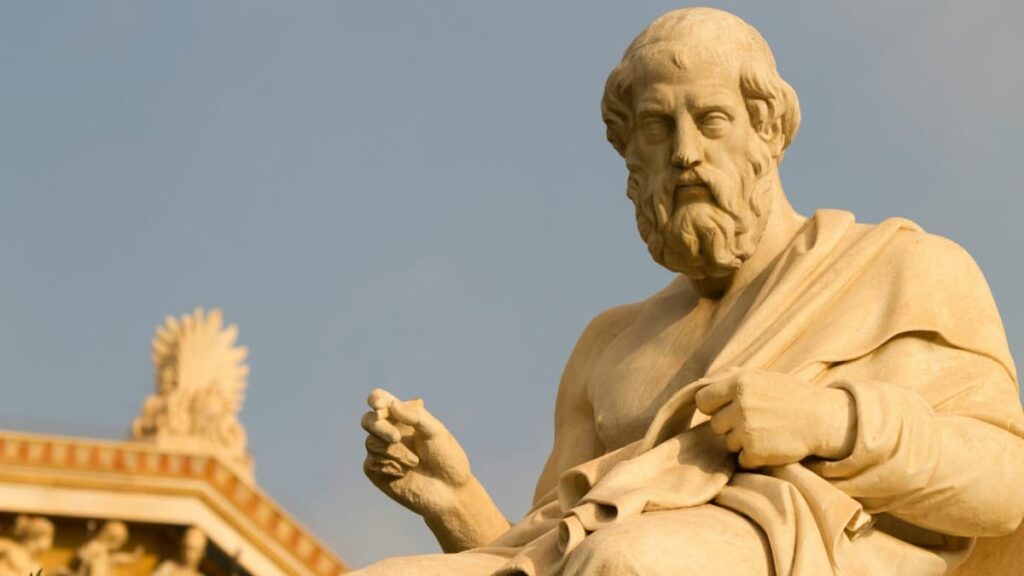
Plato is one of the most famous philosophers in history, known for his contributions to fields such as ethics, politics, and metaphysics. However, he is also known for his belief the divine. In fact, Plato’s philosophy is deeply intertwined with his understanding of the divine.
Plato believed that there was a higher reality beyond the material world, which he called the Theory of Forms. He believed that the material world was only a shadow or imitation of this higher reality.
Plato also believed that there was a divine or spiritual aspect to human beings. He believed that the soul was immortal and that it was capable of knowing the Forms or Ideas. In fact, he believed that the ultimate goal of human life was to attain knowledge of the Forms and to become like the divine.
Another noteworthy aspect is Plato’s formulation of the concept of a Demiurge—an entity responsible for the creation, growth, and destruction within the universe. It isn’t characterized as an intelligence per se, but rather as a force inherent in the realm of existence carrying out these functions.
Overall, Plato’s philosophy is characterized by his belief in the divine and his understanding of the world as a reflection of a higher reality. His ideas have had a huge influence on Western philosophy and continue to be studied and debated to this day.
Interesting fact: Plato was a student of Socrates and went on to become the teacher of Aristotle, who in turn became the mentor of Alexander the Great.
René Descartes
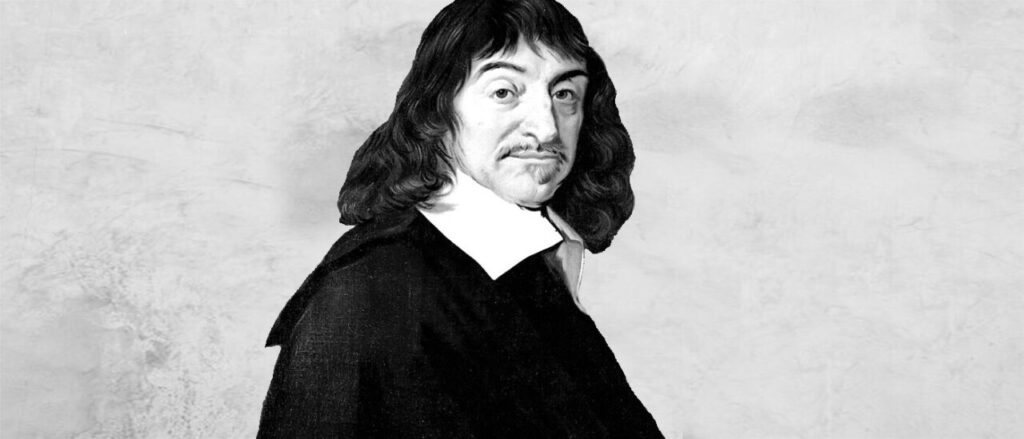
René Descartes (1596-1650) was a French philosopher, mathematician, and scientist who is known for his contributions to modern Western philosophy. Descartes believed in the existence of God and argued for it in his famous work “Meditations on First Philosophy“.
In his meditations (6 meditations), Descartes presented several arguments for the existence of God. One of his most famous arguments is the ontological argument, which states that the very concept of God implies his existence. According to Descartes, the idea of God as a perfect being who possesses all perfections, including existence, cannot be conceived without existing in reality.
Another argument presented by Descartes is the cosmological argument, which postulates that the existence of the universe requires a cause, and that cause could be God.
Despite his arguments for the existence of God, Descartes’ philosophy also emphasized the importance of reason and doubt. He believed that individuals should question everything they believe to be true and only accept beliefs that are certain and indubitable.
Interesting fact: Descartes is known for his famous quote “Cogito, ergo sum” (I think, therefore I am), which is a cornerstone of modern philosophy.
Immanuel Kant
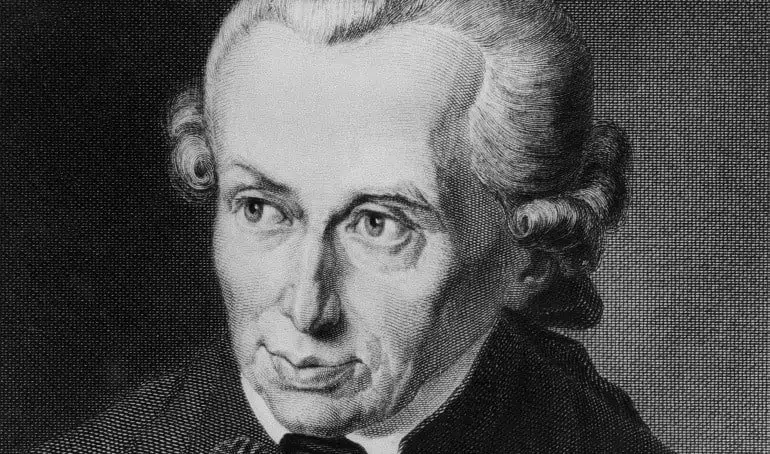
Immanuel Kant (1724-1804) was a German philosopher who is known for his moral philosophy. He believed that the supreme principle of morality is a principle of practical rationality that he called the “Categorical Imperative.”
According to Kant, the moral law is a truth of reason, and hence all rational creatures are bound by the same moral law. Thus, in answer to the question, “What should I do?” Kant replies that we should act rationally, in accordance with a universal moral law.
Kant’s moral argument for the existence of God is based on the idea that morality requires the existence of God. Kant argued that the existence of God is necessary to ground the objectivity of moral values and duties. He believed that if there is no God, then there is no objective basis for morality. Kant’s moral argument for the existence of God can be summarized as follows:
- Moral values and duties are objective.
- Objectivity of moral values and duties requires the existence of God.
- Therefore, God exists
Kant’s moral argument has been the subject of much debate among philosophers. Some have criticized the argument, arguing that it is based on a false premise or that it does not provide a compelling reason to believe in the existence of God. Others have defended the argument, arguing that it provides a strong reason to believe in the existence of God.
Overall, Kant’s moral argument for the existence of God is for sure an important contribution to the philosophy of religion.
Interesting fact: Immanuel Kant was known for his punctual habits to the point that locals in Königsberg, his hometown, set their clocks by his daily walks. Additionally, Kant’s routine was so predictable that it is said one could set their watch based on the exact moment he passed by various locations in the city.
William James
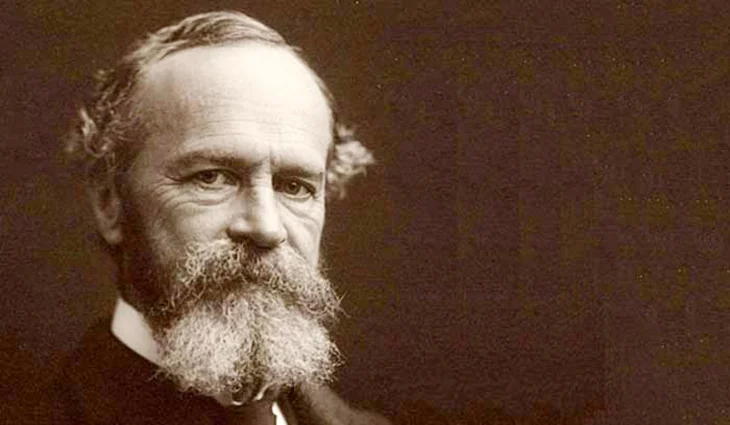
William James was an American philosopher and psychologist who lived from 1842 to 1910. He is known for his contributions to the philosophy of pragmatism and the psychology of religious experience.
James believed that the truth of an idea should be judged by its practical consequences rather than its correspondence to reality. This approach is known as pragmaticism.
James was a theist who believed in believing in God. He argued that belief in God is justified not by evidence or argument, but by its practical value.
In his essay “The Will to Believe,” James argued that it is sometimes rational to believe something without evidence if the belief is important to one’s life and cannot be proven or disproven.
James’s approach to theism is known as pragmatic theism. He believed that belief in God is justified because it has practical value in people’s lives. According to James, belief in God can provide comfort, meaning, and direction in life. He argued that the value of belief in God should be judged by its practical consequences rather than its truth.
Interesting fact: William James was the brother of the novelist Henry James.
Gottfried Wilhelm Leibniz

Gottfried Wilhelm Leibniz was a German philosopher and mathematician who lived from 1646 to 1716. He is known for his contributions to the fields of metaphysics, epistemology, logic, philosophy of religion, mathematics, physics, geology, jurisprudence, and history.
Leibniz was a polymath who made significant contributions to the development of calculus independently of Sir Isaac Newton. This is known as Leibniz–Newton calculus controversy. Namely the argument between the two people (Newton and Leibniz) over who had first invented calculus.
With regards to religion, Leibniz believed in God’s existence and was a rationalist who thought that reality was composed of spiritual, non-interacting “monads.” He is most noted for his optimism, which is his conclusion that our world is, in a qualified sense, the best possible world that God could have created. This view has been sometimes satirized by other thinkers, such as Voltaire in his satirical novella Candide.
Leibniz’s philosophy of optimism was based on his belief that God is perfectly good and that all things happen for the best. He argued that evil and suffering are necessary parts of the world and that they serve a greater purpose in the grand scheme of things.
Interesting fact: Leibniz was also a diplomat who served as an adviser to the House of Brunswick-Lüneburg and the Holy Roman Empire.
Antony Flew
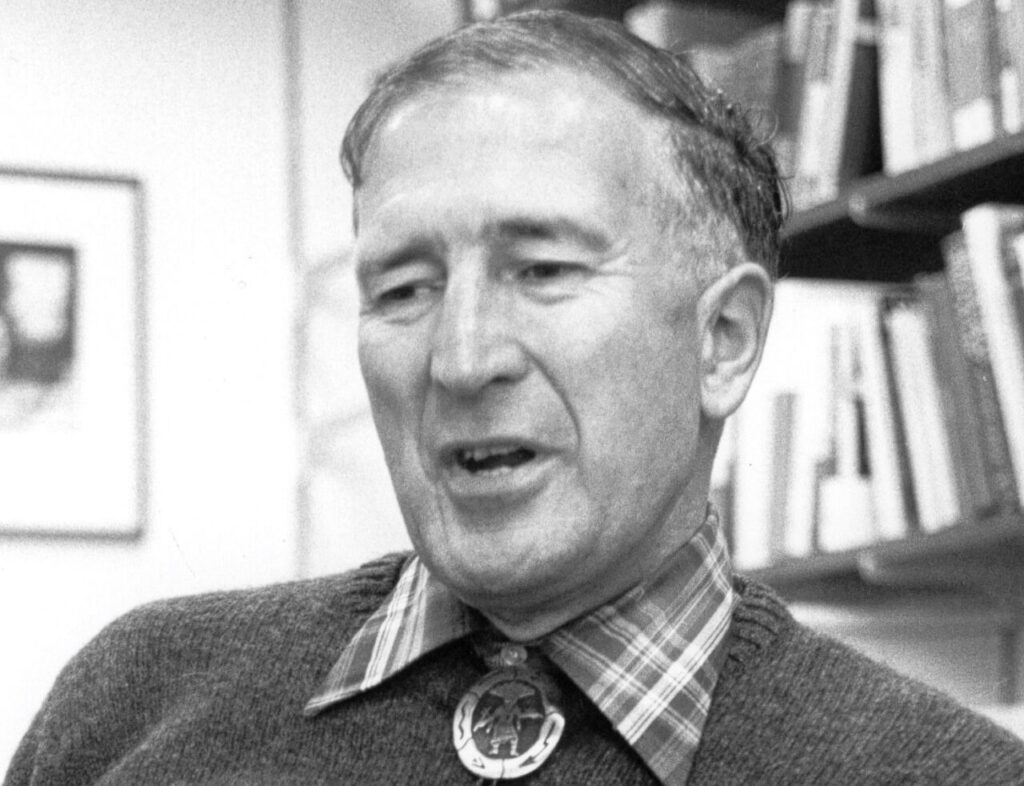
Antony Flew was an English philosopher who was known for his strong stance on atheism. However, towards the end of his life, he changed his position and became a deist.
In 2007, he co-authored a book with Roy Abraham Varghese titled “There is a God: How the World’s Most Notorious Atheist Changed His Mind,” which outlined his reasons for the change in belief.
Flew was born in 1923 and was the son of a Methodist minister. He was educated at a Christian boarding school but later became disillusioned with religion. As a teenager, he decided that the traditional Christian concept of a good God was inconsistent.
Flew’s change in belief was controversial and sparked much debate in philosophical circles. He argued that the complexity of the universe and the existence of life could not be explained by naturalistic means alone, and therefore, the existence of a deity was necessary.
Despite his change in belief, Flew remained critical of organized religion and did not believe in the personal God of Christianity. He passed away in 2010 at the age of 87.
Interesting fact 1: Flew was a prolific writer and wrote over 30 books during his lifetime, including “The Presumption of Atheism” and “God and Philosophy.”
Interesting fact 2: Flew’s argument for the existence of God was based on the concept of intelligent design, which posits that certain features of the universe and living organisms are best explained by an intelligent cause rather than natural selection.
Søren Kierkegaard
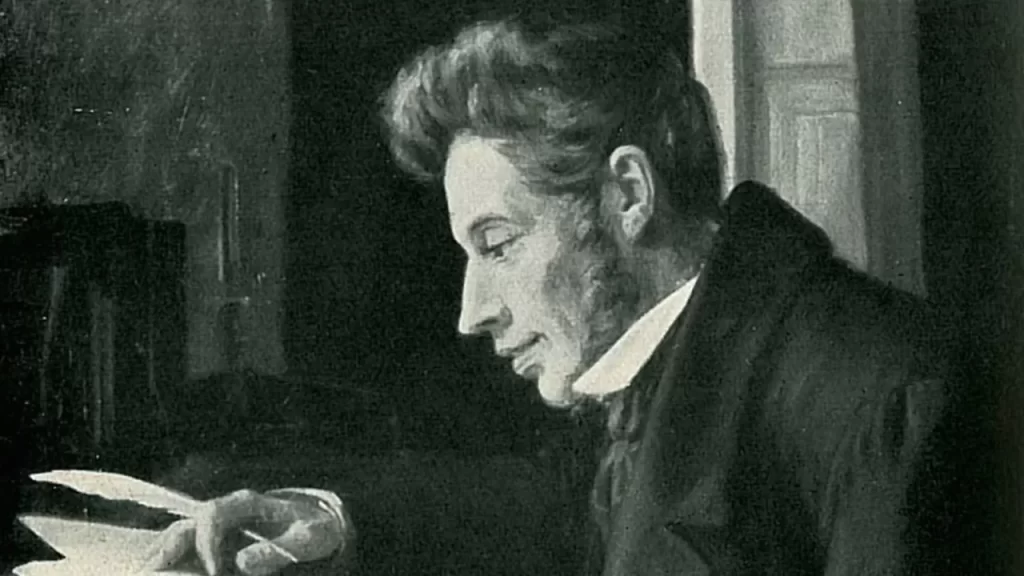
Søren Kierkegaard was a 19th century Danish philosopher who is widely considered to be the father of existentialism. He was a prolific writer whose work spanned philosophy, theology, religious and devotional writing, literary criticism, psychology, and social critique.
Kierkegaard was a devout Christian who believed that faith was one of the most important aspects of human existence. He argued that faith was not a matter of reason or evidence but rather a leap of faith that required a radical commitment to God.
Kierkegaard’s philosophy emphasized the importance of subjective experience and individual choice. He believed that individuals must make a personal decision to embrace faith and that this decision could not be made on behalf of anyone else. Kierkegaard was critical of the established church and its emphasis on conformity and tradition, arguing that true faith required a personal relationship with God.
Kierkegaard’s ideas about the nature of faith and the importance of individual choice continue to be influential today. His work has been the subject of extensive study and debate, and his ideas have been interpreted in a variety of ways. Despite his criticisms of the established church, Kierkegaard remains an important figure in Christian philosophy and theology.
Interesting fact: Kierkegaard is known for his use of pseudonyms (Johannes Climacus, Johannes de Silentio, and Vigilius Haufniensus) in his writings, which allowed him to present different viewpoints and perspectives on a given subject.
William Lane Craig

William Lane Craig is a contemporary Christian philosopher who has made significant contributions to the fields of philosophy of religion and apologetics.
He is currently a Research Professor of Philosophy at Talbot School of Theology in California.
Craig has authored over 30 books, including “Reasonable Faith: Christian Truth and Apologetics” and “God Is Great, God Is Good: Why Believing in God Is Reasonable and Responsible.”
Craig is best known for his work on the Kalam cosmological argument, which he has defended in numerous debates and publications. The Kalam cosmological argument is a modern formulation of the cosmological argument for the existence of God.
It argues that the universe had a beginning, and that this beginning was caused by a transcendent, personal Creator. Craig has also defended the moral argument for the existence of God, which argues that objective moral values and duties can only be grounded in God’s nature.
Craig’s work has been influential in the field of Christian apologetics, and he has been a leading voice in the resurgence of philosophical interest in theism in recent decades.
Interesting fact: Craig is an accomplished debater and has participated in over 200 public debates on the existence of God, the historicity of the resurrection, and other topics. He is known for his rigorous preparation and his ability to articulate complex philosophical arguments in a clear and very accessible manner.
Charles Sanders Peirce
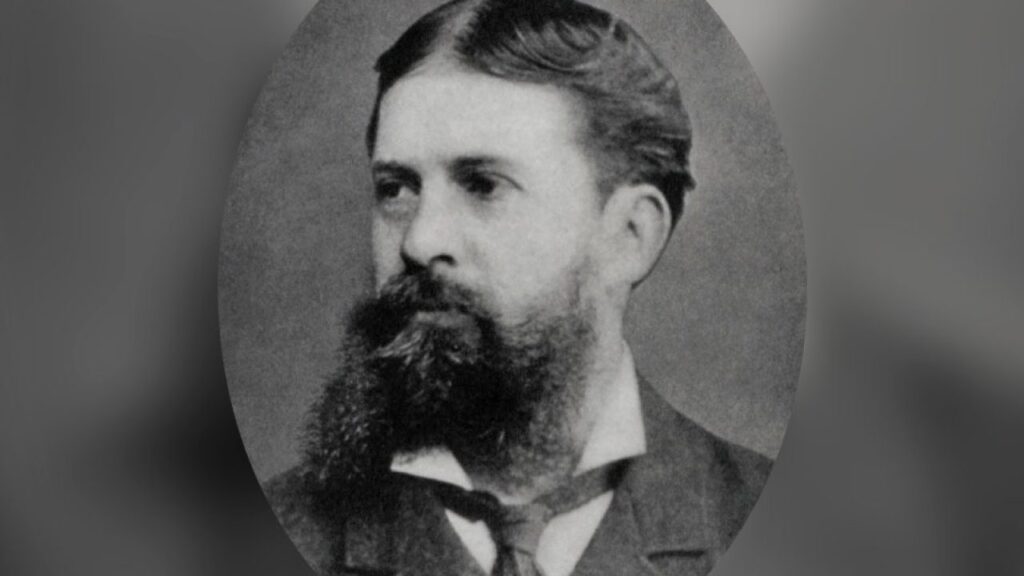
Charles Sanders Peirce was an American philosopher, logician, and scientist who is regarded as one of the founders of American pragmatism. Peirce is also known for his contributions to the field of semiotics, which is the study of signs and symbols and their use and interpretation.
Peirce believed that the universe was governed by laws that were discoverable by humans, and that these laws were evidence of a divine intelligence.
Peirce’s philosophy was heavily influenced by his belief in God, and he argued that belief in God was rational and necessary. He believed that the universe was created by God and that the laws of nature were evidence of God’s existence. Peirce also believed that human beings had a special relationship with God, and that this relationship was based on the ability of humans to reason and understand the world around them.
Peirce’s philosophy of pragmatism emphasized the importance of action and experience in determining the truth or validity of ideas. He believed that ideas should be tested by their practical consequences, and that the meaning of a concept was determined by its practical use. Peirce’s pragmatic approach to philosophy was influential in the development of American philosophy and had an impact on the work of other philosophers, including William James and John Dewey.
Interesting fact: One interesting aspect of Charles Sanders Peirce’s life is his proposal for a graphical system called “existential graphs” as a method of logical notation. Unlike traditional symbolic logic, Peirce’s existential graphs used visual symbols to represent logical relationships, providing a unique and innovative approach to the representation of logical structures.
Alvin Plantinga

Alvin Plantinga is an American analytic philosopher who is known for his contributions to the philosophy of religion, particularly his work on the problem of evil.
Plantinga’s modern defense is a response to the logical problem of evil, which argues that the existence of evil in the world is incompatible with the existence of an all-powerful, all-knowing, and all-good God.
Plantinga’s defense argues that it is possible for God and evil to coexist, as long as God has a morally sufficient reason for allowing evil to occur.
According to Plantinga, free will is one such morally sufficient reason. He argues that God could not have created a world in which humans have free will and also prevented all evil from occurring, as this would have been logically impossible.
Interesting fact: He is known for his work on reformed epistemology, particularly his theory of knowledge as warranted belief. He has also made significant contributions to the field of modal logic, which is concerned with the study of necessity and possibility.
Conclusion

Throughout history, many philosophers have dealt with the question of the existence of God. While some have rejected the idea completely, others have found interesting arguments for the existence of a higher power.
Some philosophers were deeply religious (Thomas Aquinas), while others just tried rationally and philosophically explain the potential for God’s existence.
Nobody, of course, has definitively proven the existence of God, and it is likely that such proof may never emerge. Nevertheless, philosophical discussions on this topic are inherently interesting and often thought-provoking.
In the future, we are confident that new philosophers will dedicate significant time to contemplating the existence of God or any other potential higher being.
One thing is certain – the question of God’s existence has been and will remain one of the most discussed questions of all time, not only among philosophers.
Frequently Asked Questions

What is the view of modern philosophers on the existence of God?
The views of modern philosophers on the existence of God are varied. Some philosophers, such as Alvin Plantinga and William Lane Craig, argue that belief in God is rational and can be supported by philosophical arguments. Others, such as Richard Dawkins and Sam Harris, argue that belief in God is irrational and that there is no evidence to support the existence of God.
Are there any Christian philosophers who believe in God?
Many Christian philosophers believe in God. Some notable examples include Augustine of Hippo, Thomas Aquinas, and Anselm of Canterbury. These philosophers have argued that belief in God is rational and can be supported by philosophical arguments.
What is the relationship between theism and philosophy?
Theism is the belief in the existence of a god or gods. Philosophy is the study of fundamental questions about existence, knowledge, values, reason, mind, and language. Theism and philosophy are closely related because many philosophical arguments concern the existence of God or the nature of God. Many philosophers have used philosophical arguments to support or refute theism.
What are some examples of theism philosophy?
Some examples of theism philosophy include natural theology, which is the study of God through reason and observation of the natural world, and revealed theology, which is the study of God through religious texts and traditions. Other example of theism philosophy include theodicy, which is the study of why a good God would allow evil and suffering in the world.
Did any Greek philosophers believe in God?
Many Greek philosophers believed in the existence of gods. For example, Plato believed in a single, supreme God who created the universe and governs it according to reason. Aristotle also believed in God, although his conception of God was more abstract and less personal than Plato’s. Additionally, many other Greek philosophers believed in a pantheon of gods and goddesses who controlled various aspects of the natural world.
Note: If you’re interested in similar articles we invite you to check out:




















